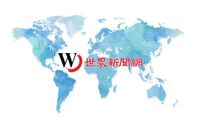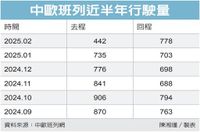In the first two months of 2025, the China-Europe Railway Express (CRE) saw a significant decline in operations, marking a worrying shift after several years of growth. Recent data indicate that the total number of trains operated during January and February reached only 2,658, a 9.2% decrease compared to the same period last year, with freight falling 11.3% to 280,000 TEUs (Twenty-foot Equivalent Units). Among the outbound trains, only 1,177 were dispatched, representing a drastic 26.1% year-on-year drop.
The China-Europe Railway Express, established in 2016, serves as an essential link for trade between mainland China, Europe, and countries included in the Belt and Road Initiative. By the end of 2024, the service had operated more than 100,000 trains, connecting 227 cities in 25 European nations and over 100 cities across 11 Asian countries.
According to Yang Jie, the head of Ouyatil International Freight Forwarding (Shanghai) Co., Ltd., the expected seasonal increase in shipments following the Lantern Festival, which falls on the 15th day of the first month of the Lunar calendar, was notably sluggish this year. He pointed out that the slow recovery in activity may be attributed to heightened tariffs on Chinese cars imposed by Russia since October 2024. These tariffs have not only reduced the volume of car exports to Russia but have also resulted in a decrease in the overall purchasing power of Russian consumers.
Moreover, Yang mentioned that the tightening of car import regulations by Russia — which since April 2024 has required additional taxes on cars entering via Central Asian nations — has further complicated the logistics for mainland exporters. Previously, many Chinese vehicles circumvented Russian taxes by transiting through Kazakhstan and Kyrgyzstan before reaching Russia.
The impact of Russia’s recent measures has extended to transit regulations that were revamped in October 2024, with a significant expansion of the list of goods banned from transit. This includes machinery, electronic products, and camouflage clothing, primarily targeting dual-use items. Due to these changes, logistics companies in mainland China have reported significant disruptions, including the detention of 70 containers of goods meant for Europe that traveled through Russia since late October 2024.
The overall decline in the operations of the China-Europe Railway Express can thus be seen as multifaceted. The confluence of Russia's increasingly stringent trade policies, such as heightened tariffs and the banning of various goods from transit through its territory, complicates the competitive landscape for mainland exporters. This situation not only affects the direct flow of goods but could potentially reshape trade routes and partnerships along the Belt and Road initiative.
Taking a closer look at the figures, the significant drop in the number of outgoing trains from China could reflect a broader concern about the future viability of this trade route. With a major trading partner like Russia implementing stringent measures, it raises questions around how swiftly the China-Europe Railway Express can adapt and thrive in an evolving geopolitical climate. Businesses reliant on this freight link may have to explore alternative routes or strategies to maintain competitiveness.
As stakeholders within the logistics sector analyze these developments, they are left to ponder the long-term implications on trade between China, Russia, and Europe. Will the changes lead to a permanent shift in how goods are transported across these regions? The need for adaptability in response to shifting regulatory environments may become a hallmark for businesses engaged in international trade.
With the future of the China-Europe Railway Express now in flux, it is vital for companies operating along these corridors to reassess their strategies and understand the implications of ongoing geopolitical changes. The industry awaits clarity on how these regulations will evolve over time, and how that will ultimately affect the intricate web of global logistics that connects nations and industries.





